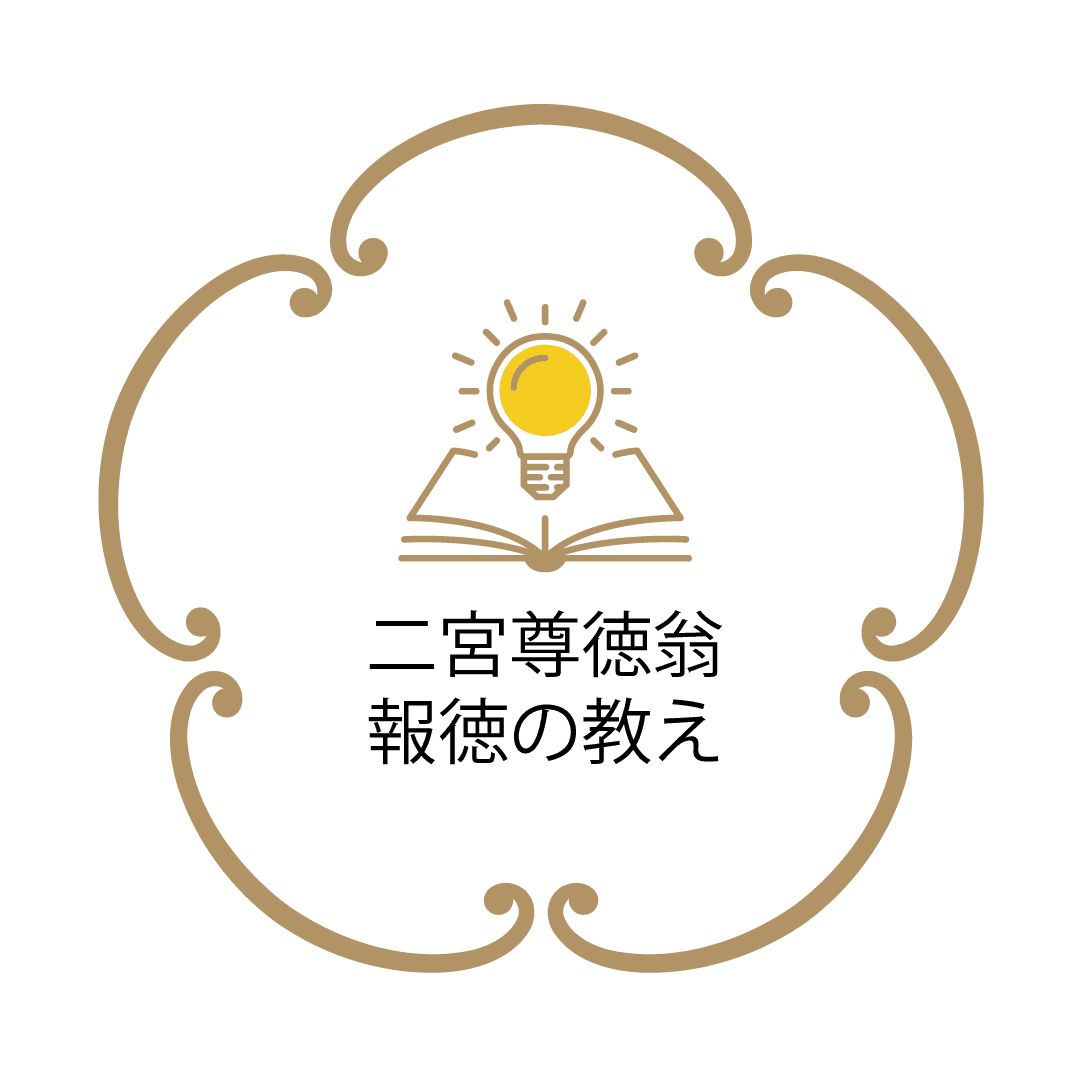
報徳の教えは、なぜ現代にも通じるのか?
その捉え方

二宮尊徳先生が生きた江戸末期は、度重なる飢饉や自然災害が発生する中、幕藩体制の停滞に伴って藩の財政状況も悪化し、日本の社会や農村は疲弊していたといいます。
当時も人口が減り、生産力が衰え、貧困のふちに追いやられる中、人々の心も荒廃してゆきました。

物の豊かさや産業は違えども、低成長の時代に、荒地は荒地の力で、その時代に適した新たな分度を定め直し、そこから生ずる余剰を推譲しながらこれを資本とし、その資本を以て緻密な事業計画を実践して、人々の自立を促しながら地域の再興を成し遂げ、人々が心豊かに暮らせる平和な社会の実現を目指す報徳の手法(道徳と経済の調和を保つ手法)は、持続可能な成長・発展、自然環境との調和が求められる現代にも有益な町づくり、国づくりの手法であると考えます。
At the end of the Edo period (1603-1867), when Mr. Ninomiya Sontoku lived, Japanese society and rural villages were suffering from repeated famines and natural disasters, and the financial situation of the clans was worsening due to the stagnation of the shogunate-han system.
As the population shrank, productivity declined, and people were driven to the brink of poverty, their minds became desolate. In this era of low economic growth, the wastelands, despite the differences in material wealth and industry, were redefined as new subdivisions suited to the times, and the surpluses generated from these subdivisions were turned into capital, which was then used to implement precise business plans. We believe that the method of rewarding virtue (a method of maintaining harmony between morality and economy), which aims to realize a peaceful society where people can live in peace and contentment, is a method of city and nation building that is still useful today, when sustainable growth and development and harmony with the natural environment are required.
